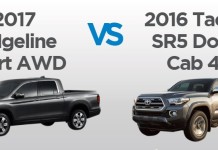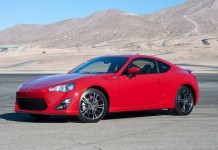It’s hard to think of another company that nose-dived as fast as Toyota has. A few months ago, millions of drivers considered Toyota the gold standard for automobiles, with quality and reliability you could practically take for granted. Then came mysterious gas-pedal problems, claims of deadly “sudden acceleration” incidents, the global recall of more than 8 million vehicles, and vacillating assurances from shellshocked executives. The recalls could end up costing $2 billion or more. Toyota’s sales have plunged, and its U.S. market share has fallen from 17 percent to 13 percent in just two months. The collapse rivals Enron or Lehman Brothers.
What’s different about Toyota, though, is that it will recover. The automaker has deep pockets and tons of talent. Diffident CEO Akio Toyoda may not be the right man to lead Toyota through the worst crisis in its history, but sooner or later the company will regain control and get back on the pavement. It may even end up a better company than before. Meanwhile, Toyota automobiles could be a smart buy, with dealers forced to offer discounts and other incentives to move merchandise sullied by the scandal. Shoppers should research prices at sites like Edmunds.com or kbb.com to make sure that the price paid today is commensurate with the likely resale value down the road. If the price seems right, there are several other good reasons to buy a Toyota:
Safety concerns are exaggerated. The problems are serious, but political posturing in Washington and media hype have created the impression that every Toyota is dangerous. That’s ridiculous. The sudden-acceleration incidents at the center of the controversy have been “linked” to 52 deaths over the past decade or so. Toyota has sold more than 20 million vehicles in the United States during that time. By those numbers, rough math suggests the odds of a sudden-acceleration fatality in a Toyota vehicle are on the order of 1 in 400,000–not exactly a death wish for somebody buying a Toyota. And those odds could end up much lower. Deaths now considered linked to sudden acceleration could later be proved to have been caused by something else–including drivers who were pressing the gas pedal instead of the brake. No driver wants to admit doing that, but the fact is, it happens.
None of that is meant to disparage people who have been killed or hurt in a Toyota, and recent revelations depict a company that seemed unsympathetic to genuine complaints from customers. But the acceleration problem could turn out to be far less widespread than current hysteria suggests. It’s worth recalling that the Audi sudden-acceleration incidents in the 1980s–at first thought to be related to vehicle flaws–were later proved to be entirely the fault of drivers. Meanwhile, by virtue of its woes, Toyota is probably paying more attention to safety right now than any other automaker, to include the extraordinary step of shutting down factories to retool the gas-pedal assembly in many popular models. Toyotas coming off the assembly line these days are probably subject to more quality control than most other cars on the market.
Recalls aren’t the whole story. Being forced to recall millions of vehicles is a big deal, but Toyota still seems to perform better than other automakers when it comes to the kinds of complaints that lead to recalls. Data analyzed by Edmunds.com, for example, show that there have been many more complaints lodged against Toyota for sudden acceleration since 2005 than for any other automaker. But overall, Toyota has drawn far fewer complaints than most competitors, which is consistent with its once sterling reputation. Edmunds found that over the past 10 years, Toyota accounted for just 9.1 percent of all complaints filed with the government, even though it racked up 13.5 percent of all car sales. So despite the acceleration issue, Toyota still performs better than most in terms of complaints.
Toyota’s not alone. Internal documents showing that Toyota boasted of saving $100 million by avoiding a series of recalls make the Japanese automaker seem singularly sinister. But all automakers try to avoid recalls. Toyota just happens to be the one that got caught boasting about it, since it’s the company under investigation right now–and subject to subpoena. And all carmakers know that the Obama administration is “not industry friendly,” as another embarrassing Toyota document put it. Obama, like Bush, is requiring steep improvement in fuel economy, which will force all automakers to invest heavily in new engine technologies. That arguably hurts the Detroit automakers most, since their fleets get the worst gas mileage and they have the farthest to go. And anybody who still has doubts should ask Rick Wagoner or Fritz Henderson if the Obama administration is industry friendly; they were both forced to resign as CEO of General Motors, in the midst of the company’s bankruptcy and federal bailout.
The cars are still good. Of 18 Toyota vehicles, seven rank in the top three in their category in the U.S. News Best Car and Truck rankings, including the Avalon sedan, Sienna minivan, Sequoia SUV, and Venza crossover. Five of 12 Lexus vehicles rank in the top three. In its latest quality ratings, J. D. Power & Associates ranks Lexus first and Toyota seventh, out of 37 automotive brands. Consumer Reports named the Toyota Prius one of its 10 “Best Picks” for 2010, despite a recall involving brakes. And CR is poised to restore its coveted “recommended” status to eight vehicles it suspended from its ranking in the midst of the mushrooming recall controversy: the Avalon, Camry, Corolla, Highlander, Matrix, RAV4, Sequoia, and Tundra. Toyota’s overall quality has slipped from the stratospheric highs of a few years ago, but there are still few automakers that can match its record across their entire fleet.
White-glove treatment. To win back customers and alleviate safety concerns, Toyota will pick up and return some recalled cars, so worried owners don’t have to drive to the dealership. Toyota is also offering rental cars or rides to work to some owners getting their cars fixed. And CEO Toyoda has said that the company must start paying more attention to customers. Toyota certainly has room to rise: It ranks 17th out of 23 on J. D. Power’s customer-service index. If Toyota is serious about rebuilding its business, it has to start by wooing skeptical consumers. That’s a boon for buyers.







